Collaborate with Industry Peers to Target, Measure, and Act to Reduce Food Waste
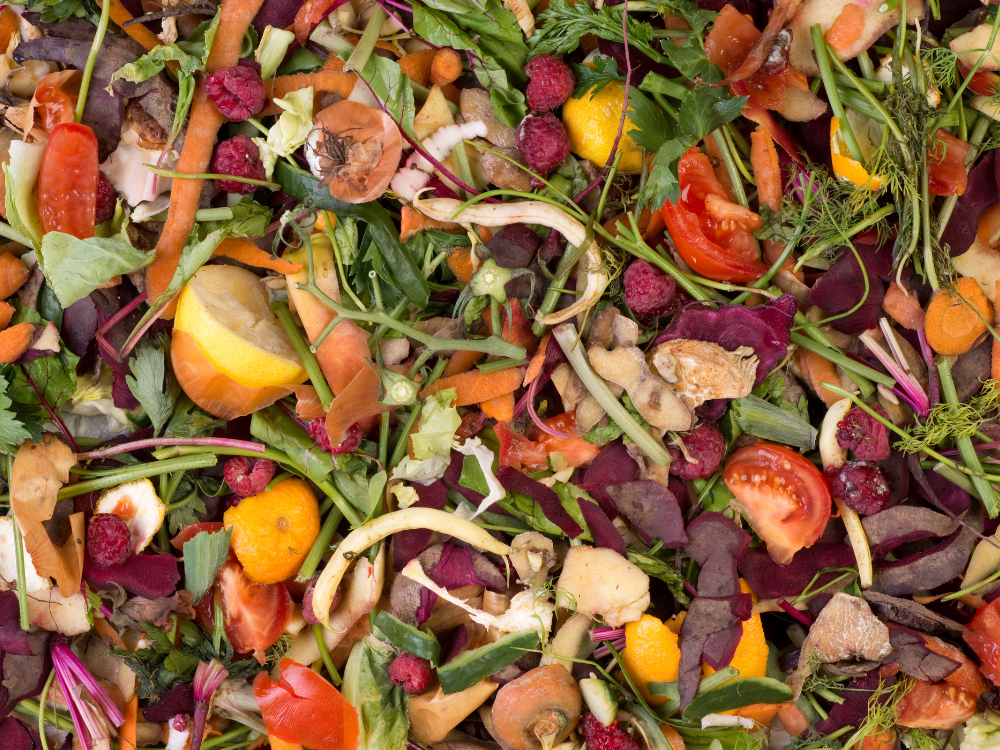
What is the U.S. Food Waste Pact?
The U.S. Food Waste Pact is a national voluntary agreement to help food businesses achieve their waste reduction targets. It’s designed to go beyond just commitment setting to actually driving meaningful progress through precompetitive collaboration and data-driven action across the supply chain.
Grounded in the Target, Measure, Act framework, the Pact gives businesses a clear path to identify opportunities, track results, and scale solutions that work. When these three levers align, real change happens: less waste, lower emissions, and stronger business performance.
-
Target | Set goals to reduce food waste.
-
Measure | Use data to mark progress against those goals.
-
Act | Implement data-informed action to meet those goals.

Who is part of the U.S. Food Waste Pact?
Since the Pact launched at the end of 2023, 29 business signatories have signed on to participate in the initiative’s programming. The Pact is gaining momentum as it works to scale its efforts into more areas of the food system and make food waste reduction more accessible and effective.


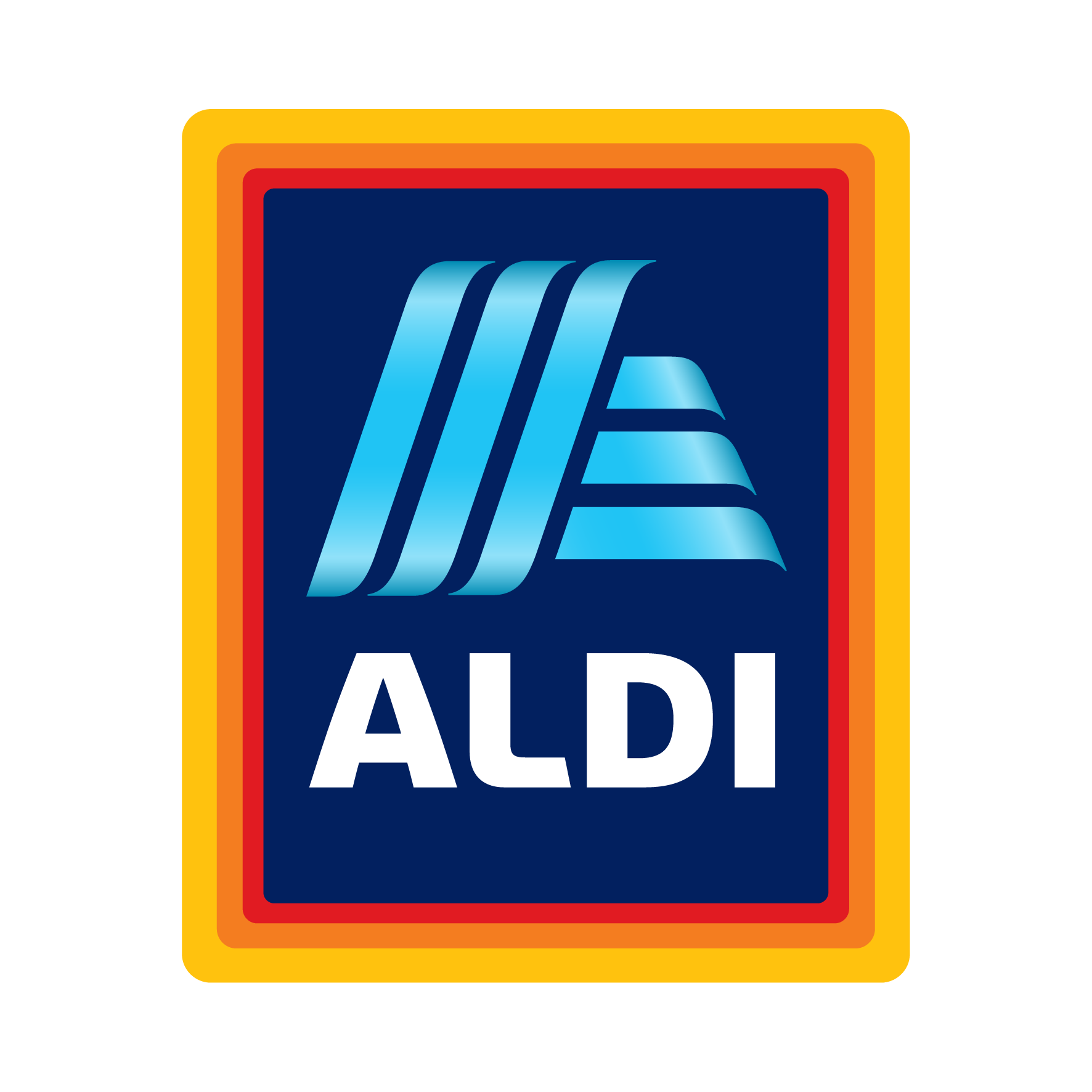
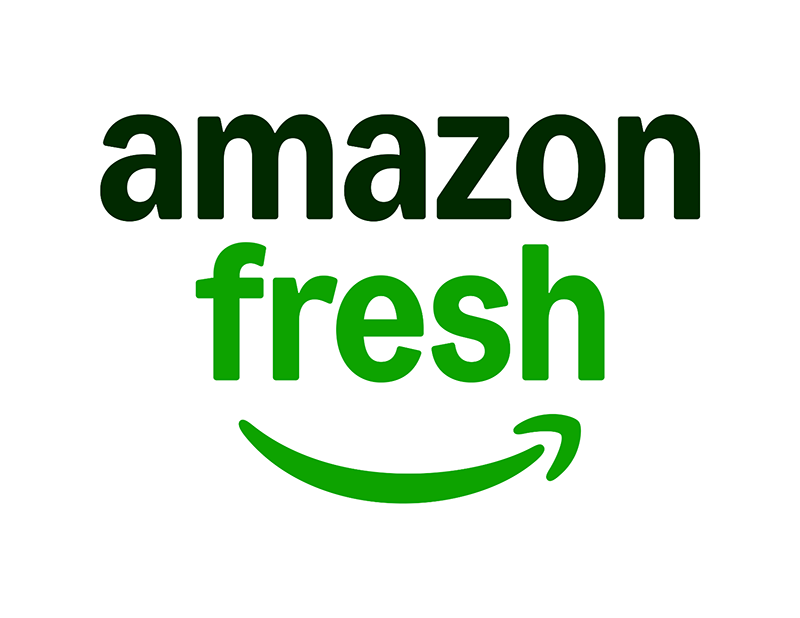

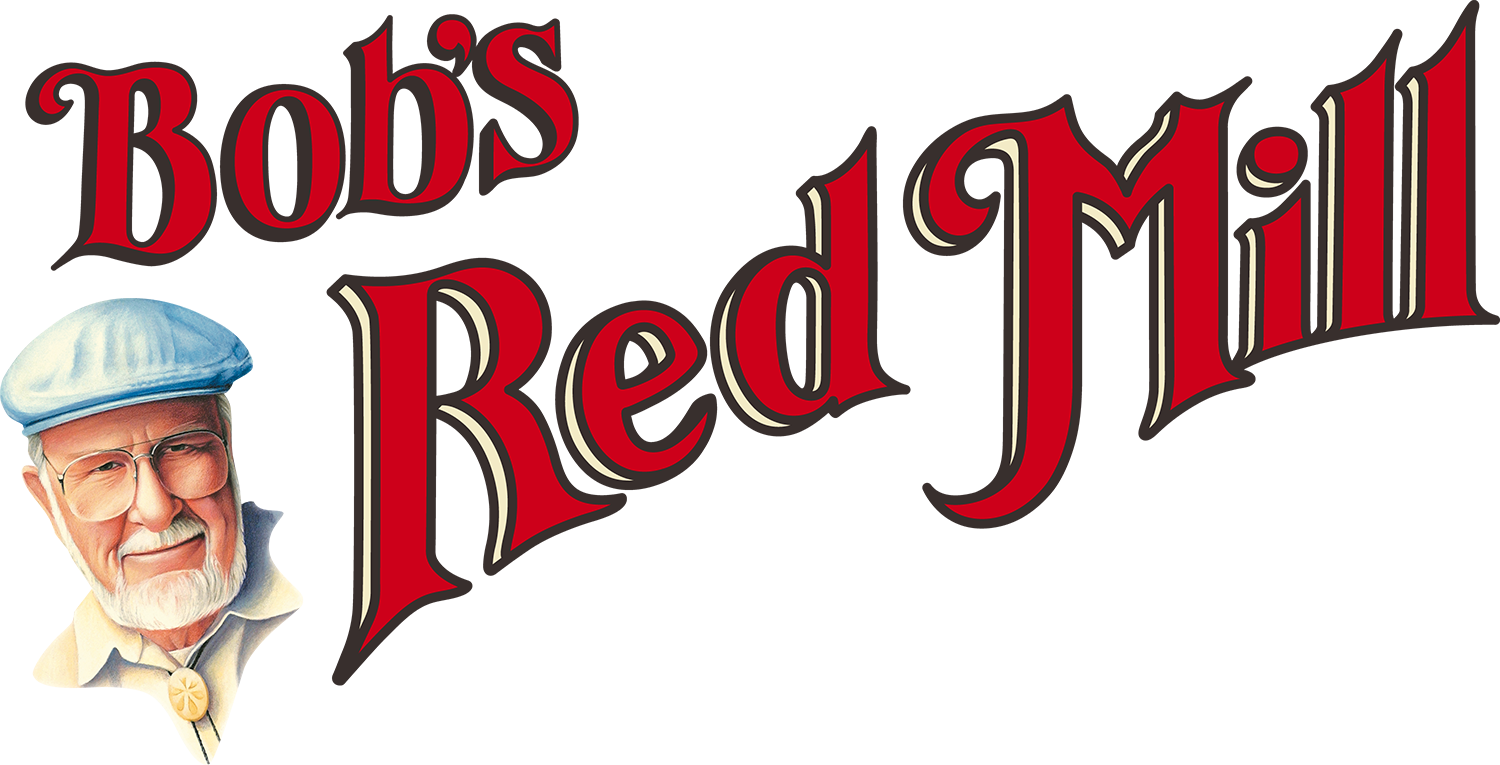

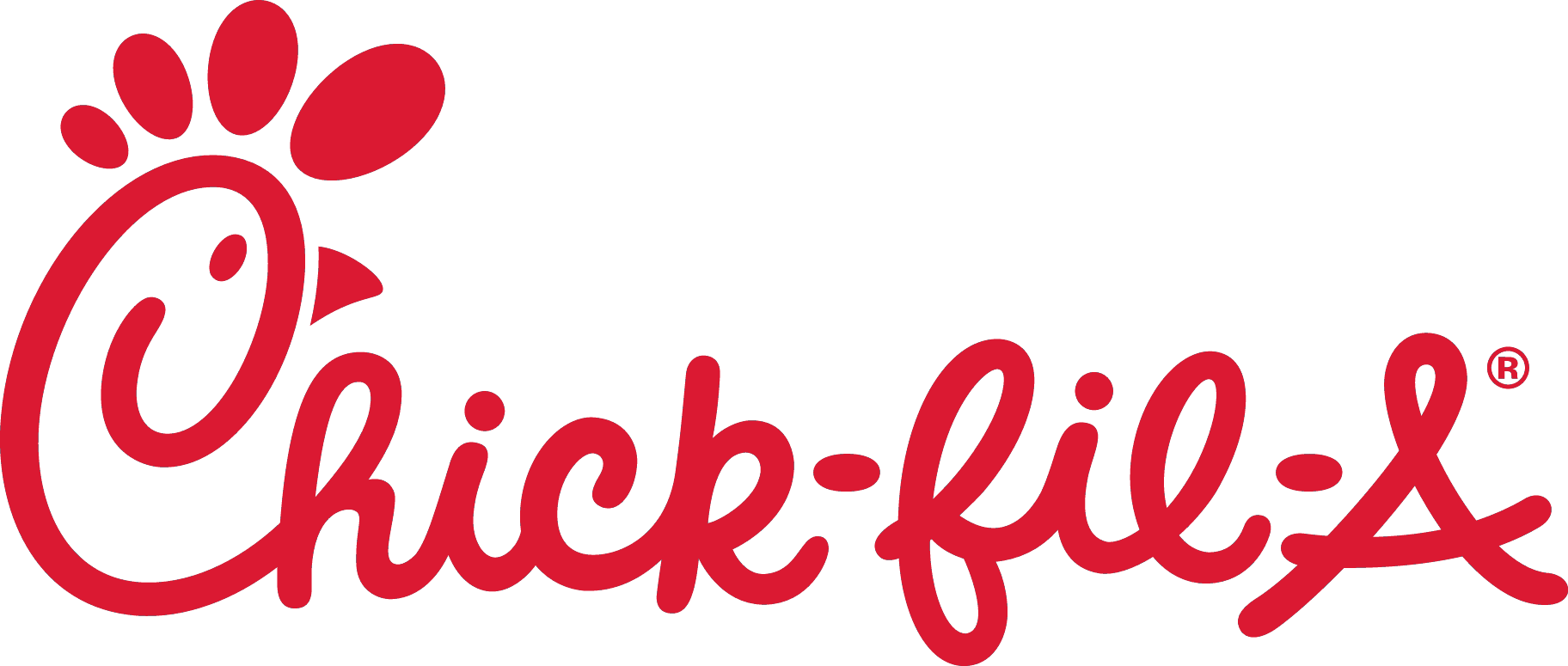
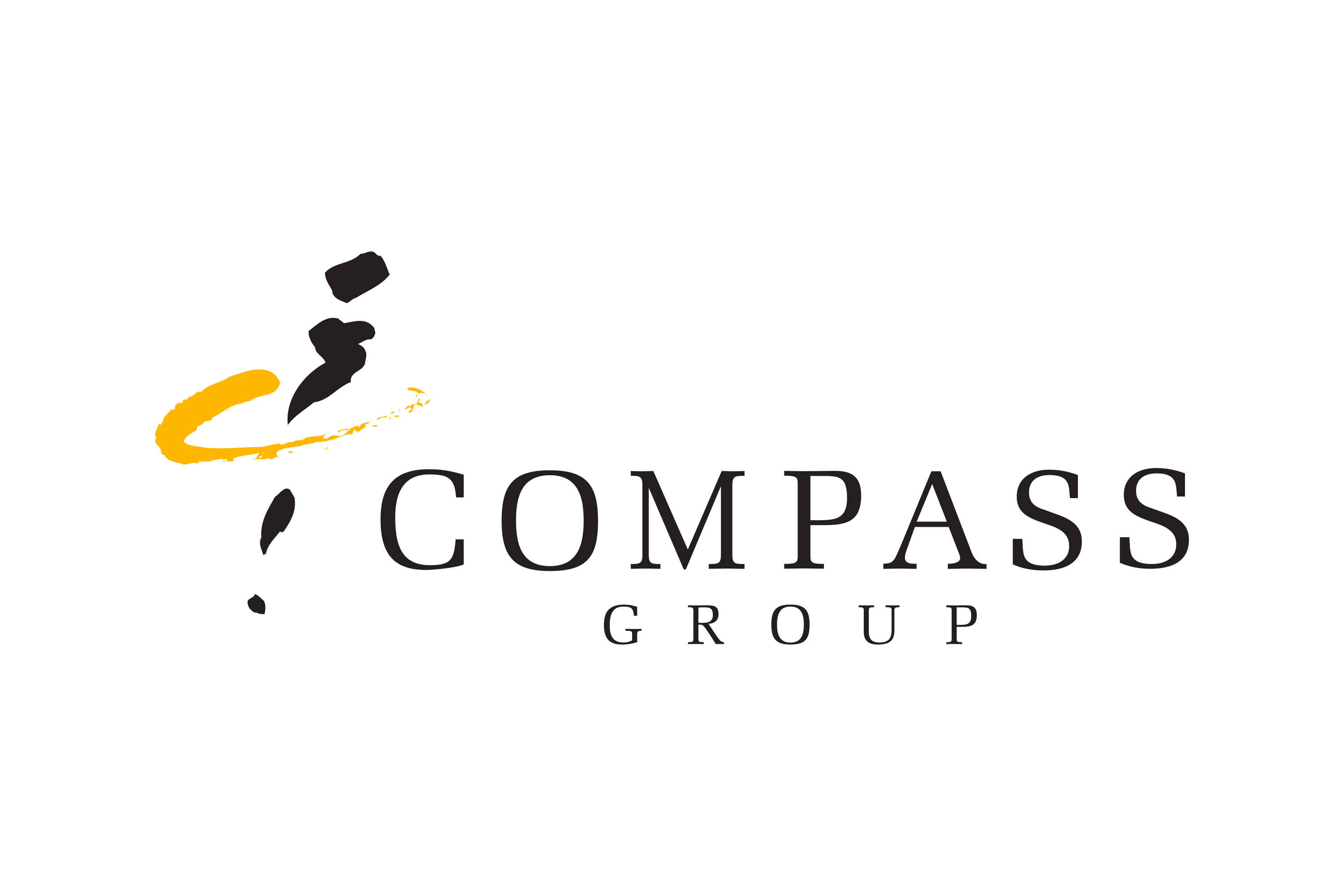
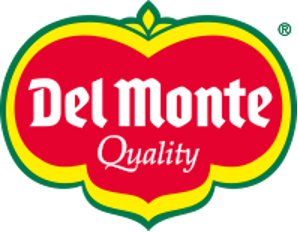
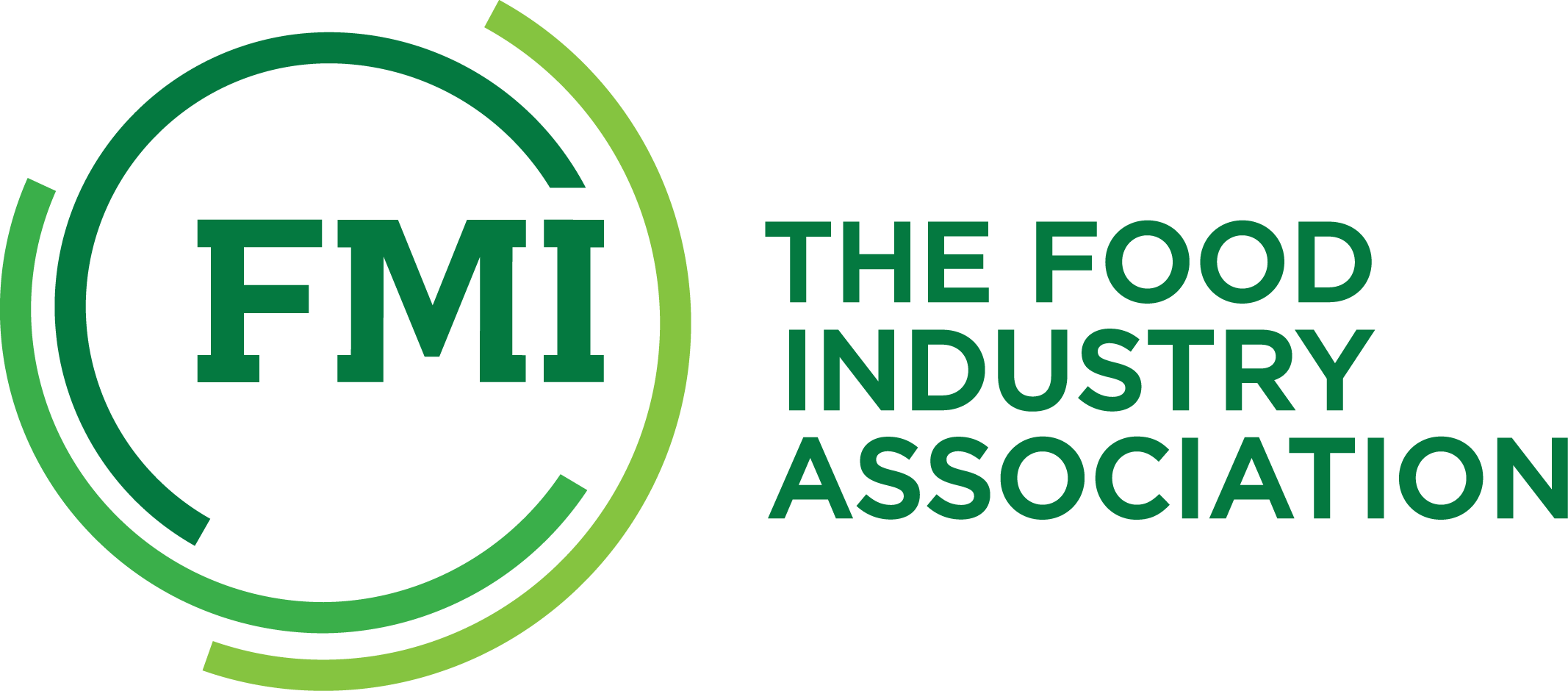
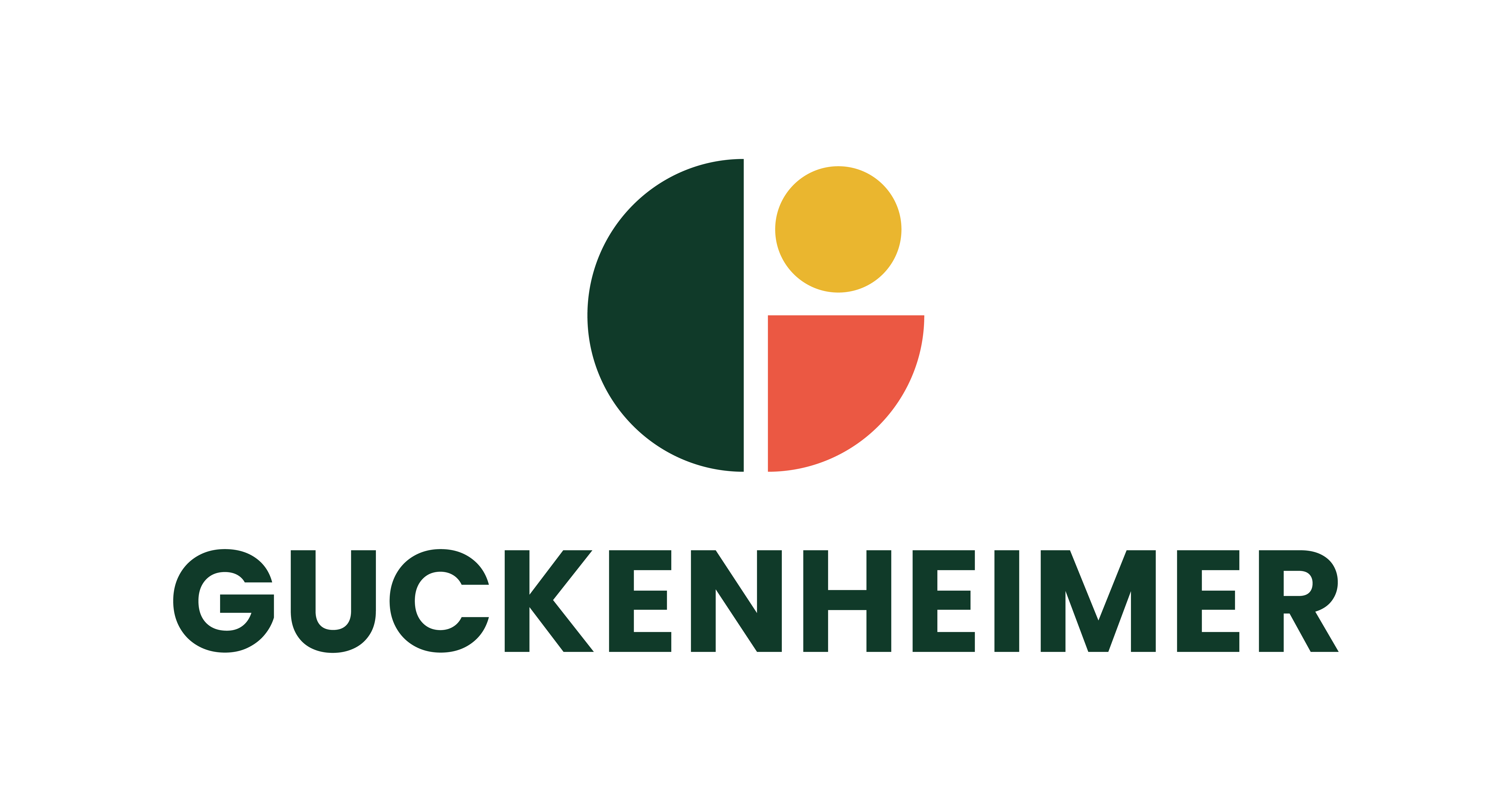
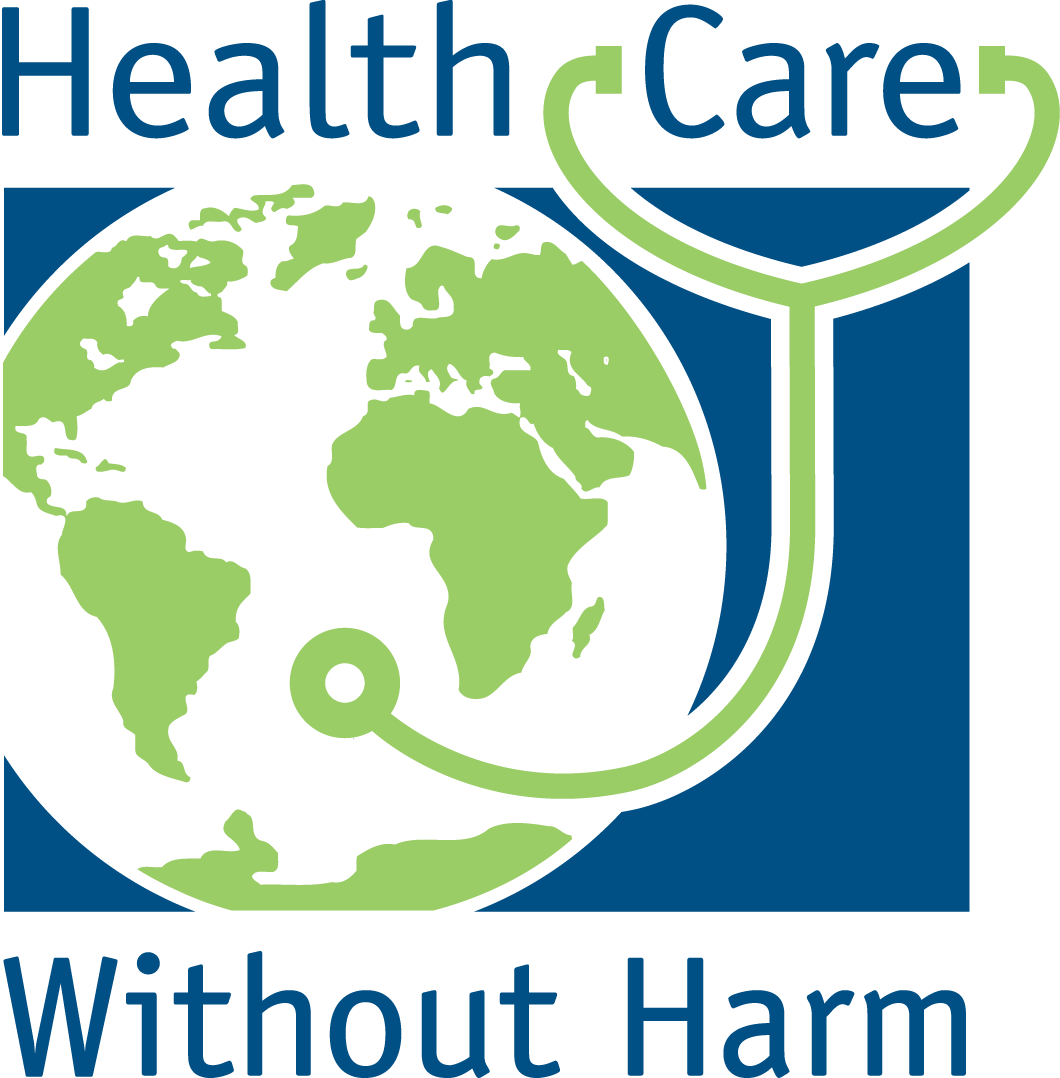
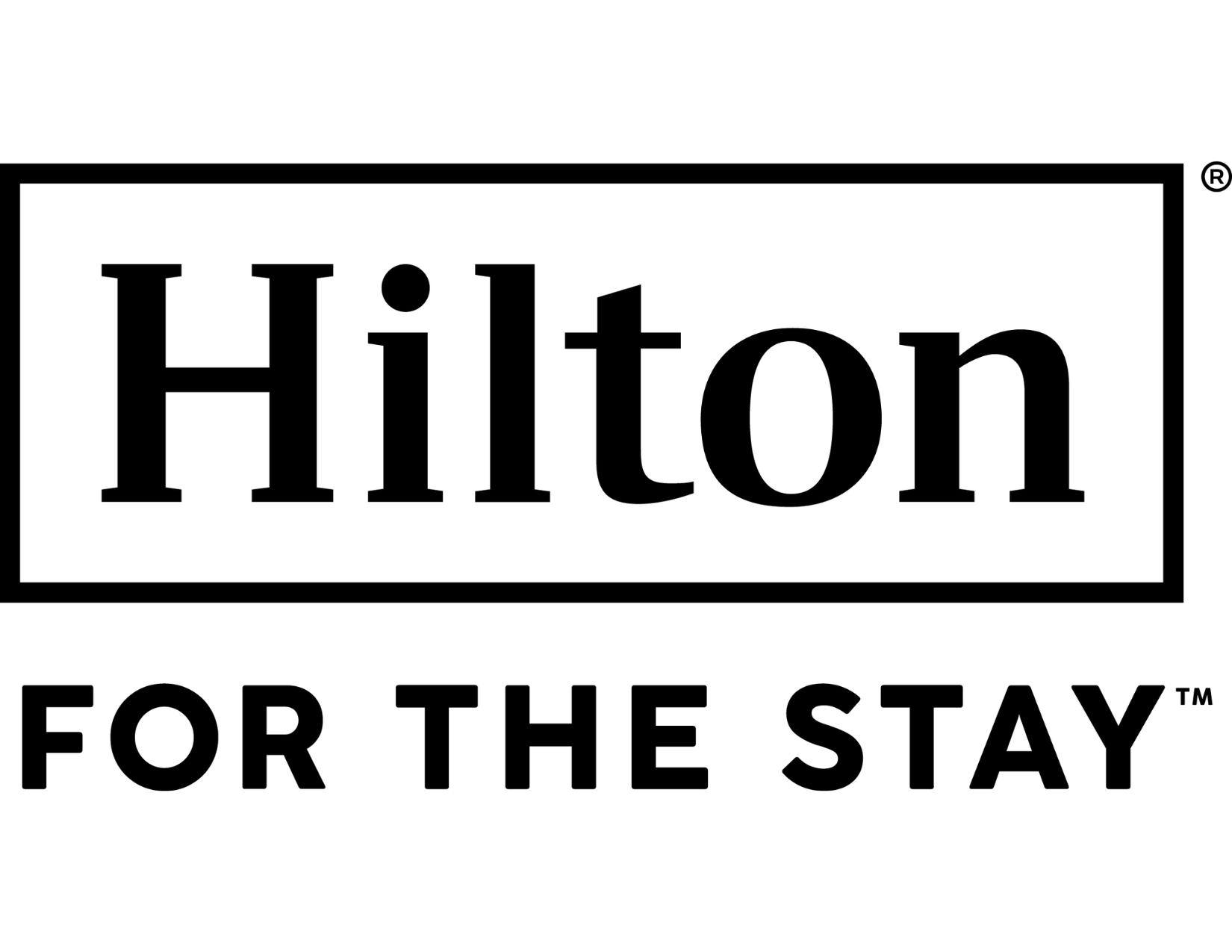

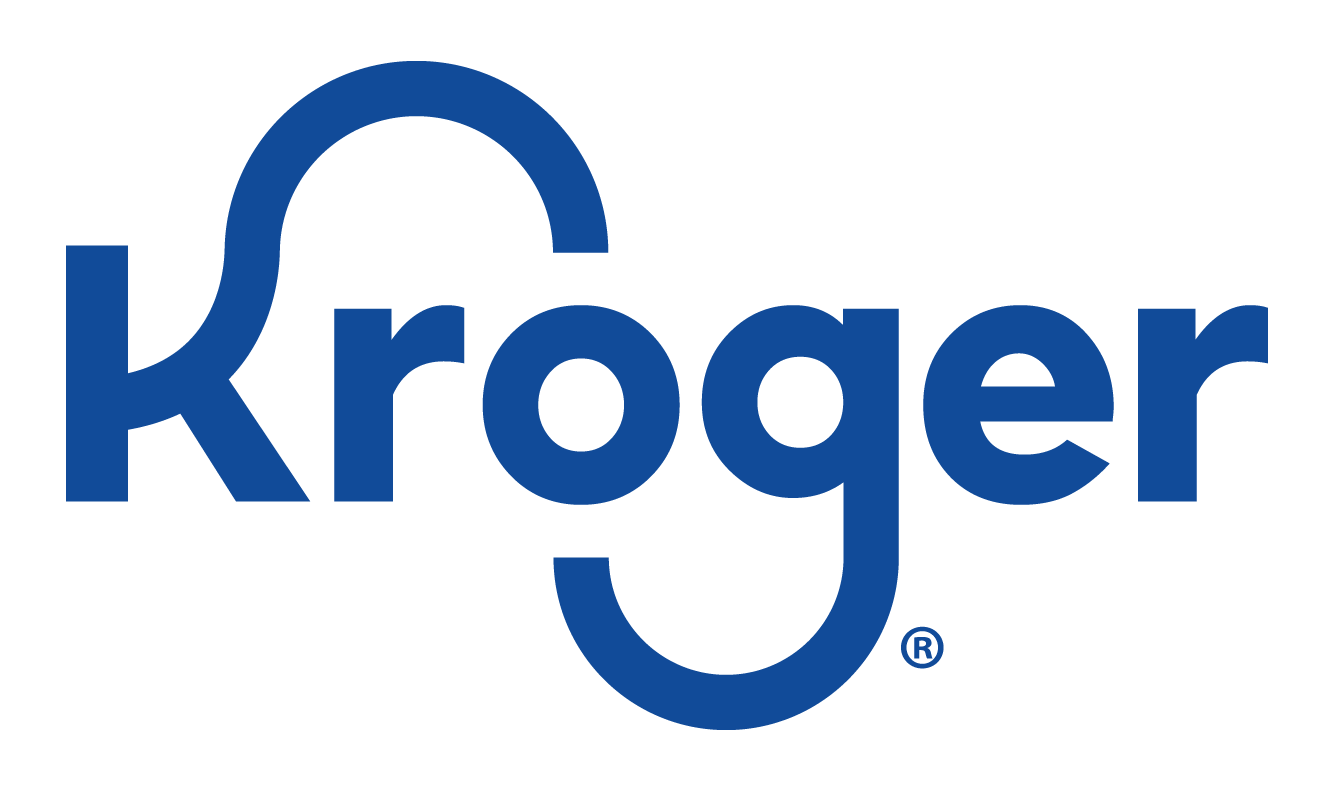

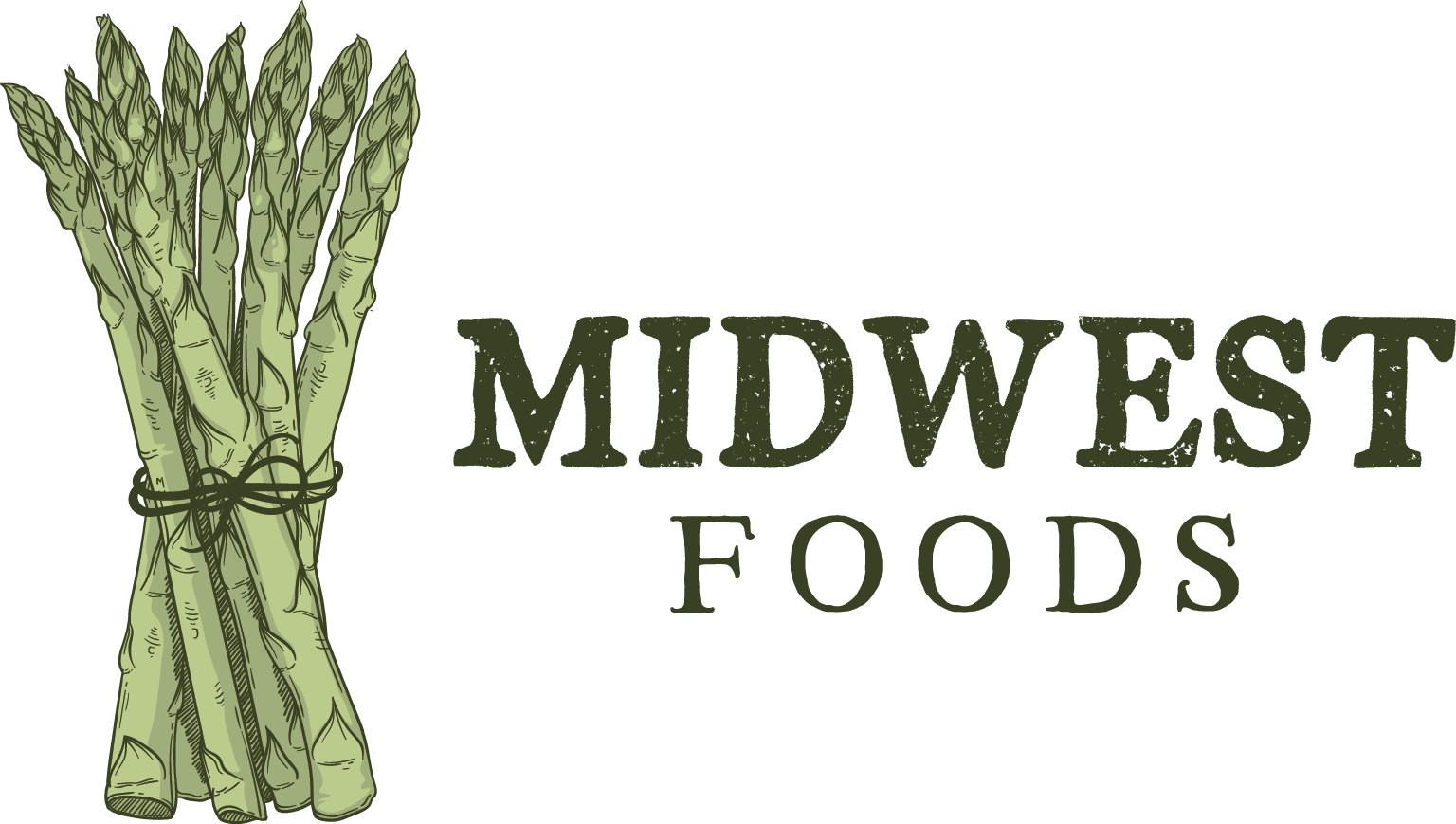

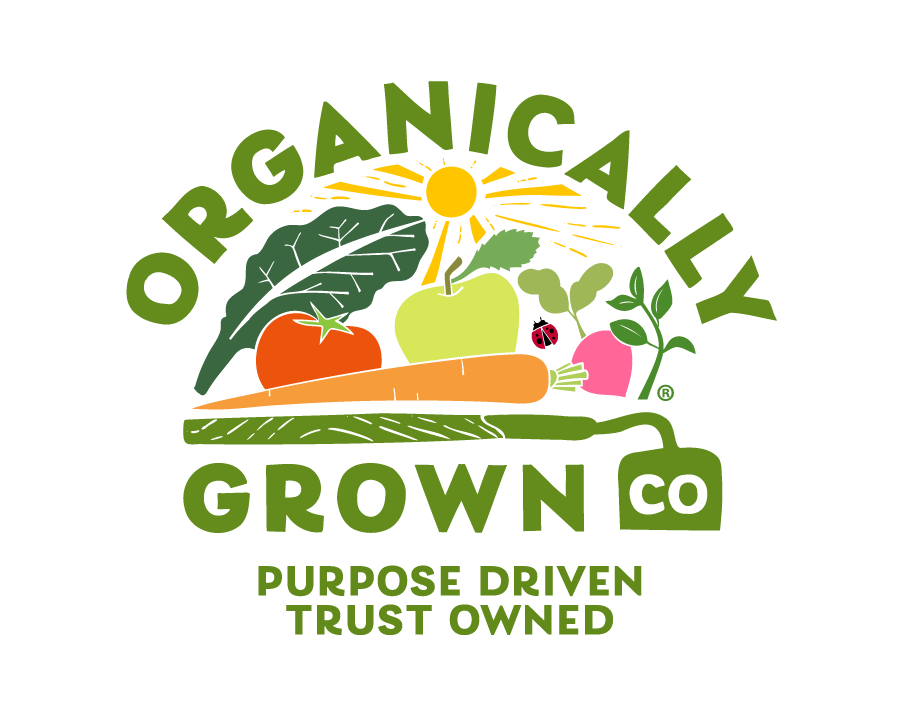
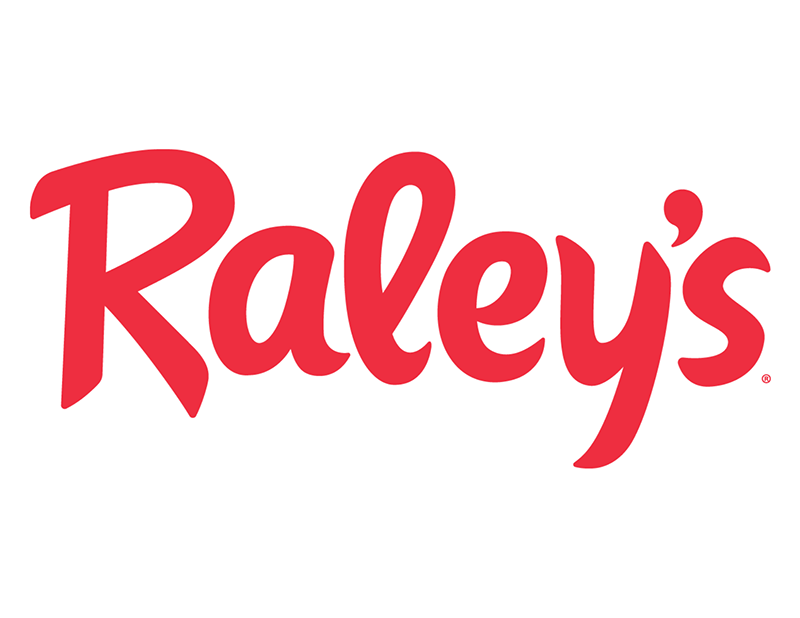
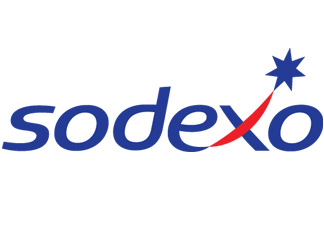
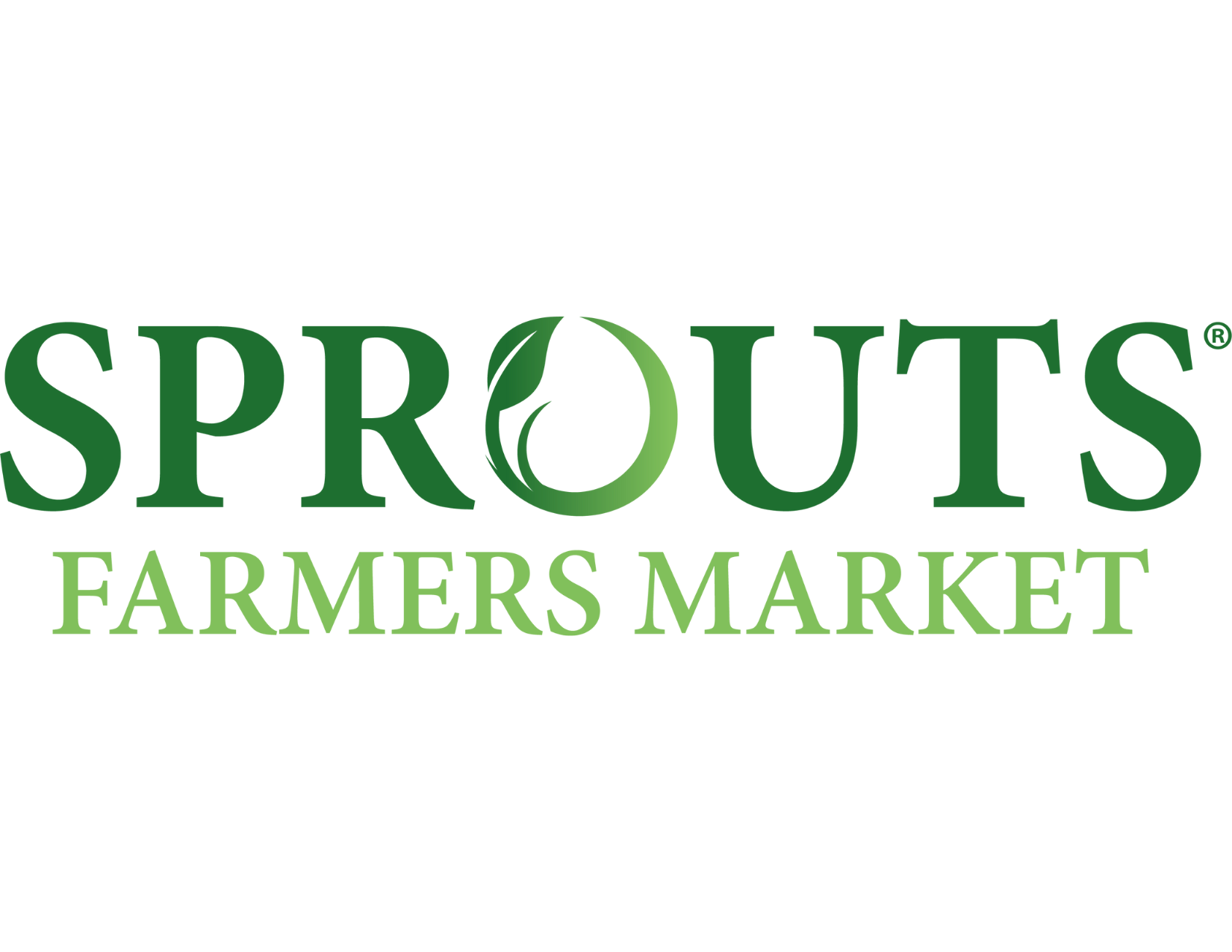
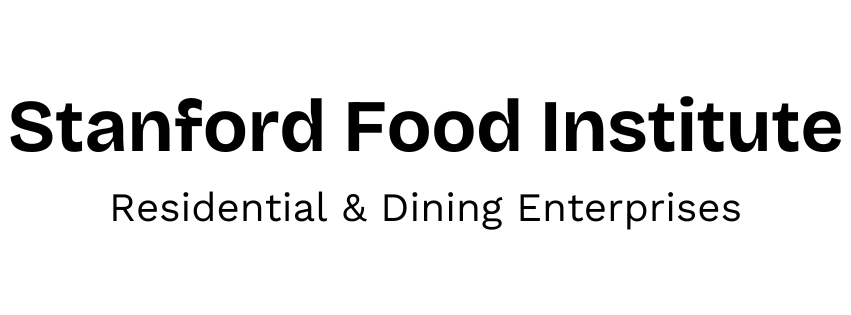
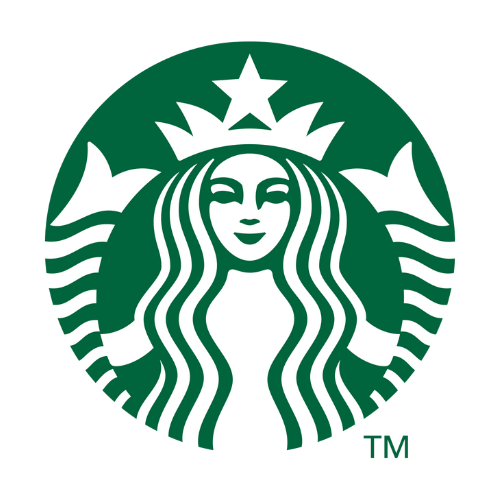

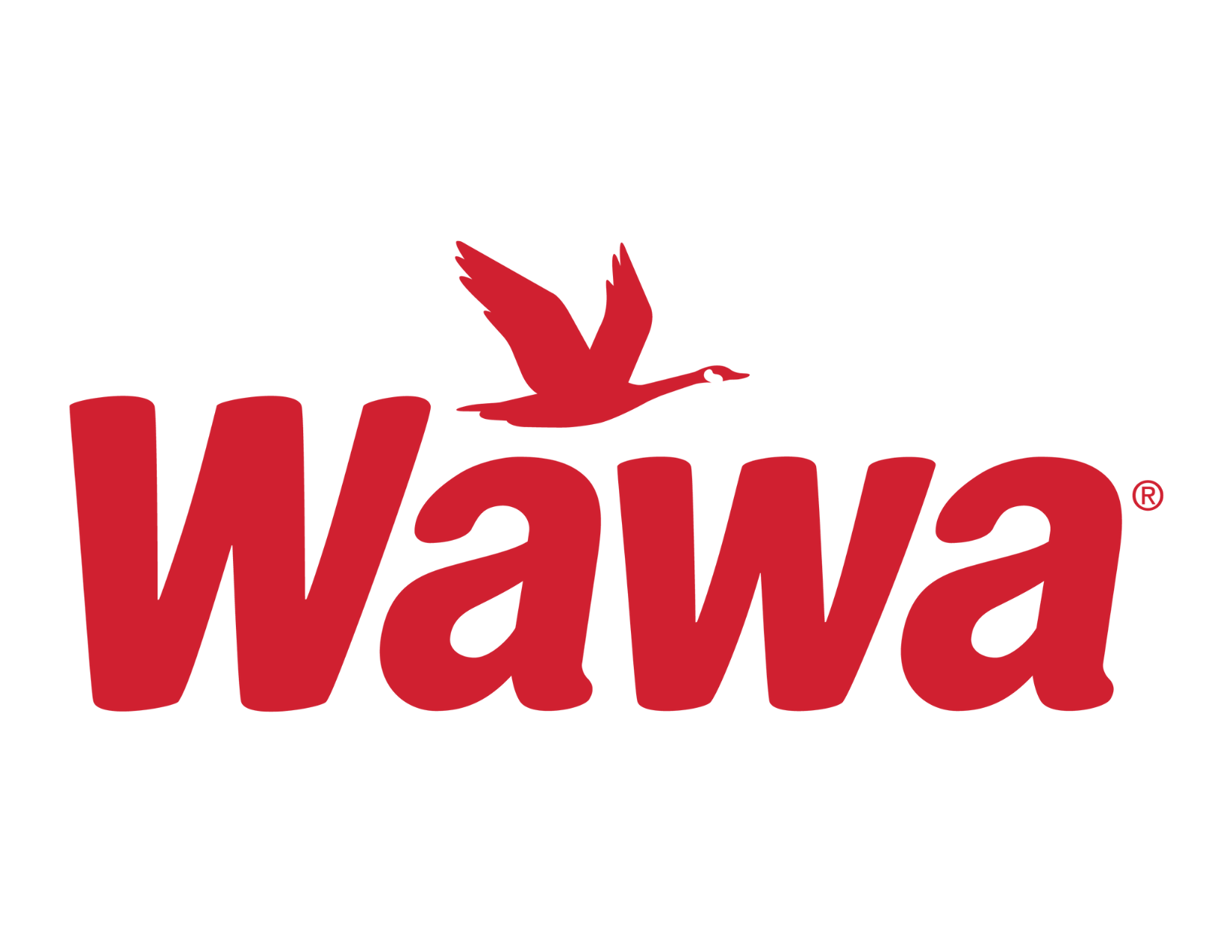

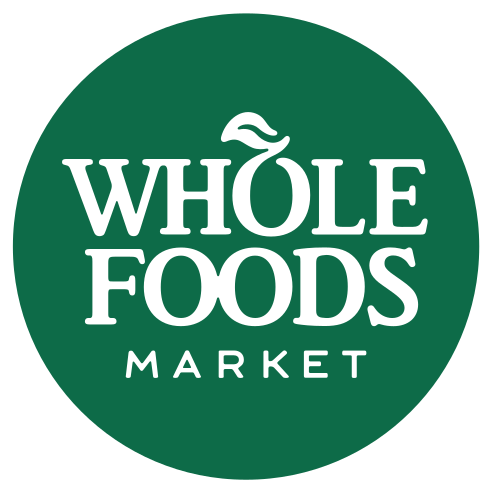
Why food waste?
In the U.S., 29% of all food goes unsold or uneaten—a $384 billion opportunity for the nation, including over $240 billion for food businesses alone. Food waste is contributing over 3% to our national greenhouse gas emissions and consuming more than 15% of our nation's freshwater supply, all while one in seven Americans face food insecurity. The U.S. Food Waste Pact will deliver on the urgent need for a national strategy and partnership to accelerate food waste reduction—a top solution to climate change.
The percentage of the U.S. food supply that goes unsold or uneaten each year
The lost value of unsold food for food businesses, from farm to retail
The number of gasoline-powered cars equivalent to food waste emissions for food businesses, from farm to retail
The number of meals that go to waste across food businesses, from farm to retail
Resources
Explore our resources to learn more about the U.S. Food Waste Pact and how you can get involved.
Employee Engagement Toolkit
The Employee Engagement Toolkit is an open-source portfolio of materials designed for food businesses of all kinds to pilot their own employee engagement intervention projects to address food waste in their operations.
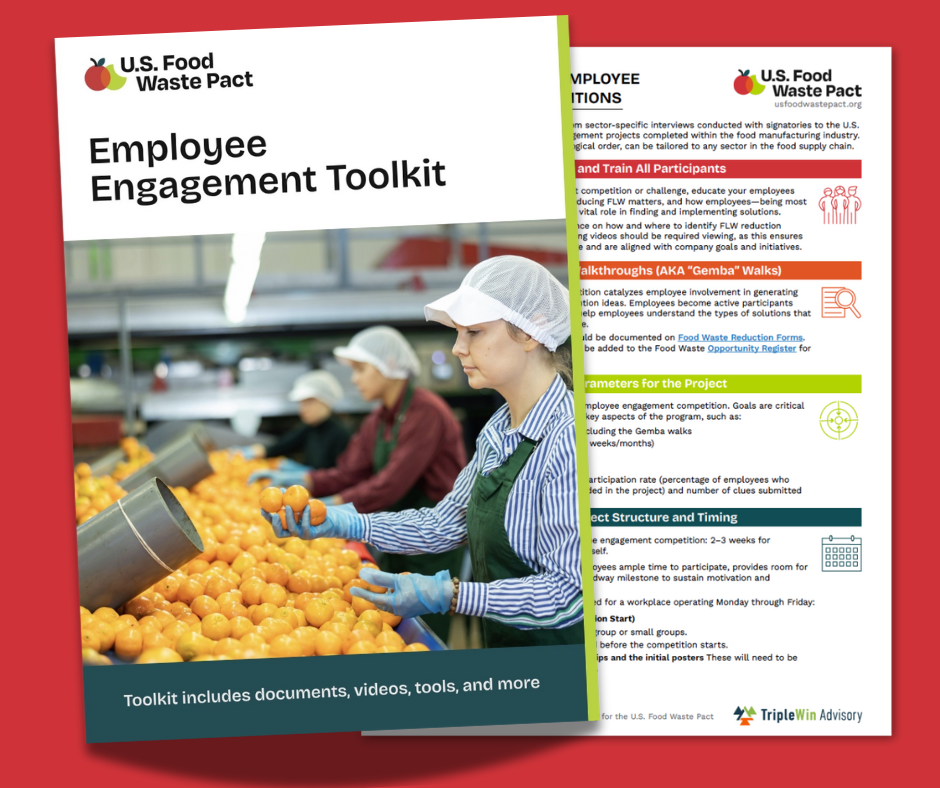
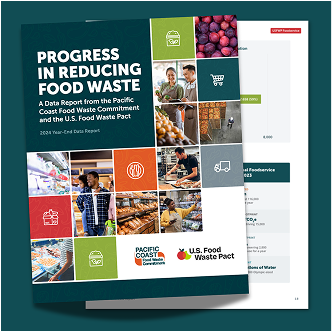
New Report
Progress In Reducing Food Waste: A Data Report from the Pacific Coast Food Waste Commitment and the U.S. Food Waste Pact
Learn how your business can join!
Thank you for your interest in joining the U.S. Food Waste Pact. We are excited to work across sectors and industries to accelerate action toward our shared goal to reduce food waste.
